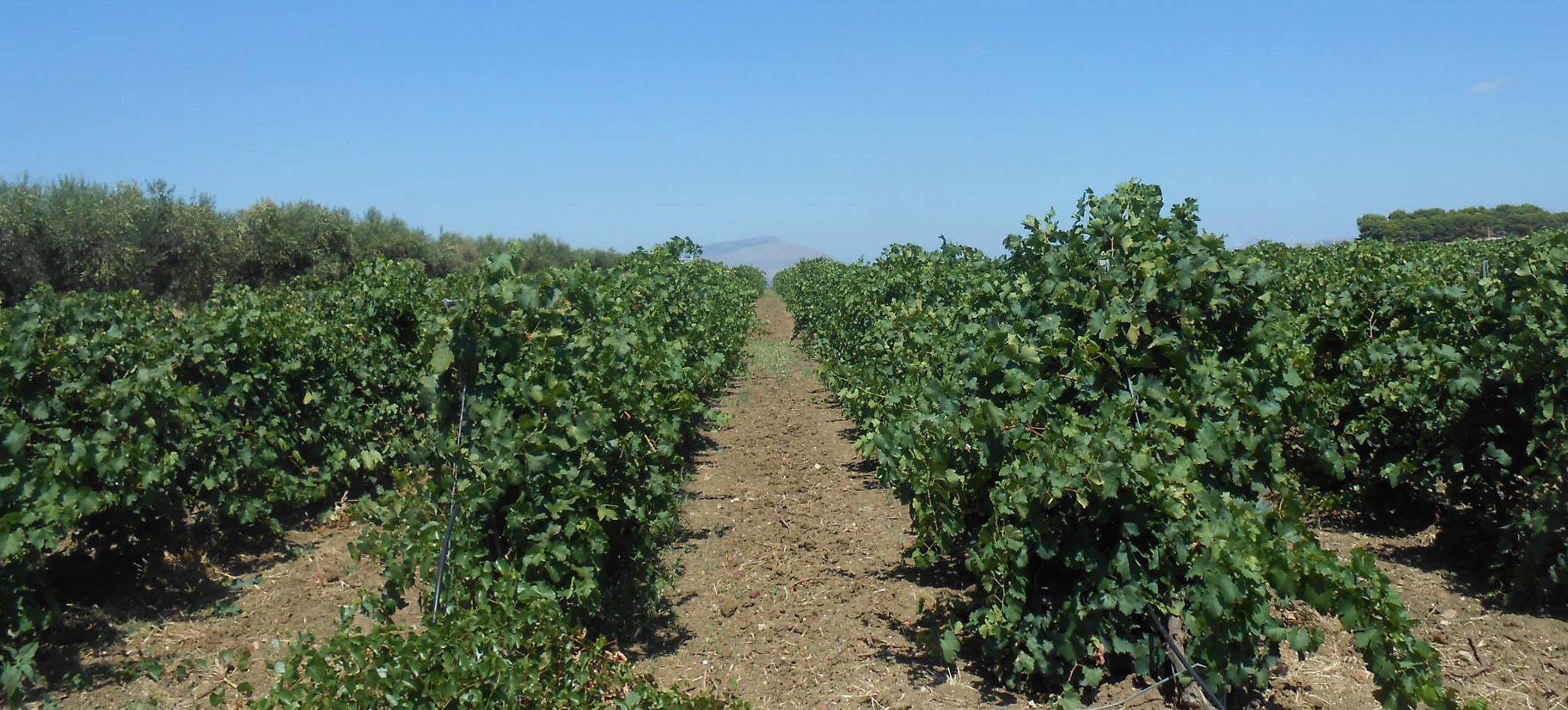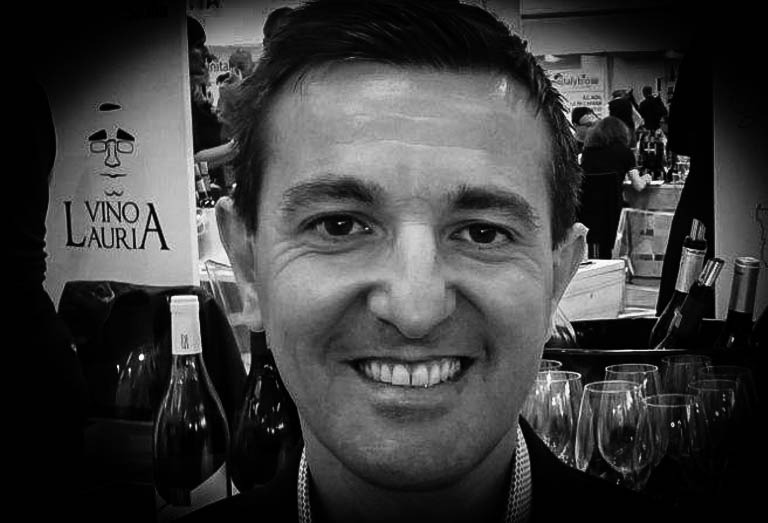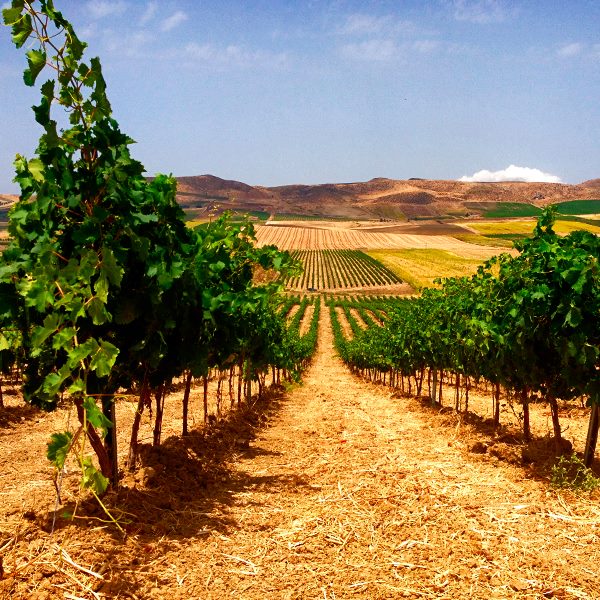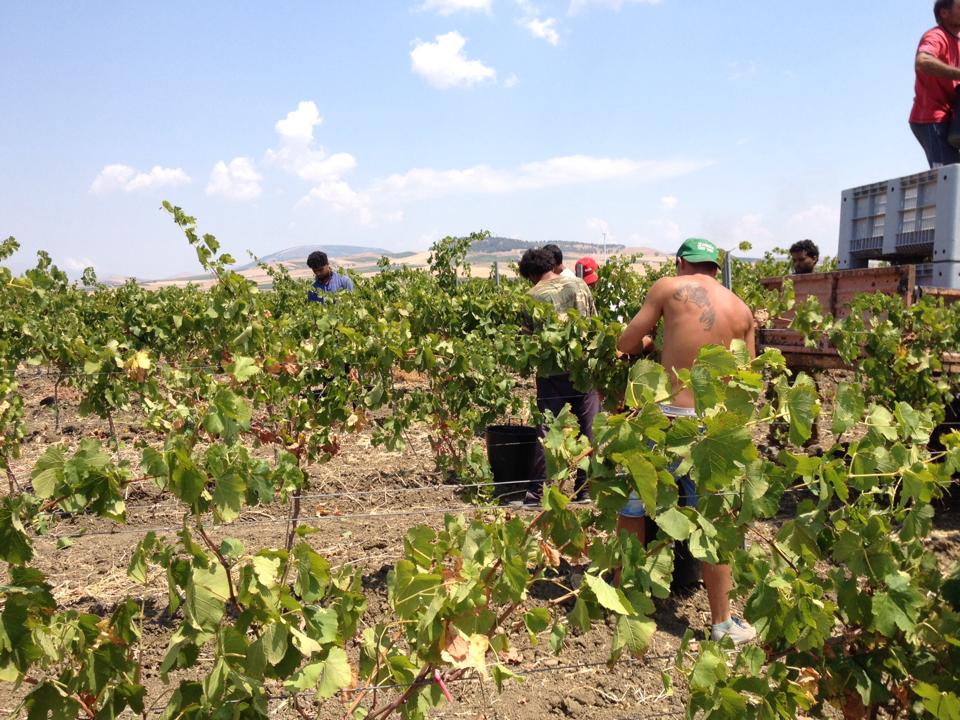
Di Legami is a small family winery in the Trapani area of Sicily. Headed up by winemaker Sebastiano Polinas and owners Giuseppe and Gabriella Di Legami they farm 45 hectares of vines which are all tended to organically and harvested by hand. Di Legami focses on Sicilian native varieties including Grillo, Perricone, Inzolia and Nero D’avola.
Grape Collective interviewed winemaker Sebastiano Polinas about making organic wine in Sicily and working with native varieties.
 Grape Collective: Can you describe the terroir? How do the soil and climate influence the wine?
Grape Collective: Can you describe the terroir? How do the soil and climate influence the wine?
Sebastiano Polinas: The heat certainly influences the quality and characteristics of wines and therefore the terroir. It all starts with a special soil processing. In the winter, we add vegetation, to make nitrogen and organic matter, but from spring onwards the grass must not be present in the soil for no competition with the vine. We are in the south, where rains are not abundant and therefore plants need not have competition for water supply in the soil. Wind and temperature influence the physiology of vine, biochemical processes and maturation, anticipated compared to northern and central Italy. So we adapt to the climate and cultivate the vine differently from the areas of abundant water.
For example, on Etna or north Italy, on Etna or north Italy the grapes are exposed in the sun to encourage better accumulation of sugars.
Southern red wines are more alcoholic, less fresh but with lots of polyphenols and color, often soft on the palate. The white wines are fragrant and fresh, because they are protected from the agronomic point of view. If we follow the northern Italy wine line, we would have colored white, alcoholic and slightly acidic wines, and probably in the place of red wines we would make very soft wines!
We also say that for we who follow the rigid rules of biology (organic viticulture) the heat and the continuous winds keep us out of many issues related to the more classical diseases of the vines, such as Oidium, Peronospora and Botritys. This does not mean they are not present but we have learned to deal with them without the use of synthetic products, only with the aid of natural products.
 How hot does it get in the summer?
How hot does it get in the summer?
For us in Sicily, and particularly in the Trapani area, we really feel the heat; which starts at the end of May, with peak points between the end of July and August to continue, though slightly milder in September. There may be cases of 40 degrees Celsius in June, depending on the wind. Ours is a windy area, but the heavier and hardest wind comes from the southeast, which can blow two out of three days a month. This wind is very hot! In fact, this wind also affects the winter months, sometimes we are at 20 degrees Celsius even at Christmas. One thing is certain, I almost never saw rains between June and October. So this is a limiting factor that affects our agriculture.
What is your philosophy of winemaking and viticulture?
On the philosophy of wines it is to be said that we are very careful to produce a grape without chemicals and, above all, one that is healthy and natural, a fundamental basis for our winemaking. We collect both white and black grapes by hand in small boxes or bins, cool and protect the press from the attack of oxygen that could degrade the aromatic potential. Important whites make a short film maceration and undergo a very soft pressing. The reds make a maceration of six to eight days at low temperatures and refinement in wine barrels for about 16 months. We carry on our own "creed" pointing to organic wines, with low SO2 content but that must be pleasant and catchy, which is essential to be able to sell our wines with pleasure!
Has your winemaking changed over time?
Of course, over time, we have changed the typology of wines, mainly due to the technological improvement in the cellar. In 2007, the year of our first winemaking, the wines were good but too alcoholic and heavy, but over the years the great work in the vineyard and the construction of the new structure, with the help of a refrigerator cell, with the increase of fridges and new winemaking techniques, we have greatly improved the products, so much so that we managed to produce a classical sparkling method.
 How much vintage variation do you get?
How much vintage variation do you get?
Being a biological wine (organic), the fruit of the vintage, every year there are differences, otherwise we will make Coca Cola! The years of hot weather can be wines more alcoholic and less acidic and less perfumed than those produced in more mild vintages. Our wines are not always similar year to year but often more and more particular.
How would you describe the Perricone and the Inzolia?
The Perricone represents the history of Trapani territory. In Sicily, on the 118,000 hectares of vineyards only 300 are planted in Perricone. But before the Phylloxera age, the hectares were many more that were Perricone as it was one of the most predominate varieties. In the '70s and '80s it was well cultivated but the advent of the international vines almost eliminated it from the rich Sicilian vineyard heritage.
We are among the 15 or 16 companies that produce Perricone and we do it with great pride.
It is a late vine and susceptible to the most common diseases, which is why farmers have abandoned it, but rich in polyphenols and aromas and lends itself to medium-long refining in wood.
Inzolia is also part of the history of Sicilian viticulture and is one of the most indigenous grape varieties present with Nero D'Avola, Catarratto and Grillo. Inzolia is delicate, but if carefully crafted, it displays beautiful and interesting floral notes accompanied by incredible freshness.










